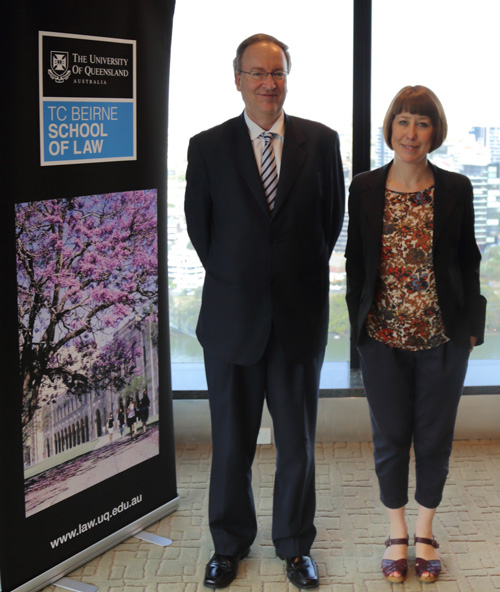
At the end of Apartheid and with the introduction of democracy, South Africa enacted its Bill of Rights. The result was a rapid expansion of delictual liability (similar to Australian private civil law) as courts started to recognise a range of fundamental rights, making it easier for plaintiffs to succeed. Adding to this upheaval is that the South African legal system still has tensions between English common law and Roman Aquilian law. Consequentially, case law is uncertain, with courts at different levels making decisions in very different ways.
Professor Helen Scott of the University of Cape Town discussed these conflicts at a fascinating UQ law lecture hosted by MinterEllison last week. Describing three cases in vicarious liability, negligent omissions and defamation, she demonstrated how the South African legal system is attempting to resolve its disparate influences, and how we may be seeing a move to a more uniquely South African concept of human rights that draws on centuries of African tradition. Quoting Mokgoro J in Dikoko v Mokhatla, the lecture concluded with:
"Whether the amende honoroable is part of our law or not, our law in this area should be developed in the light of the values of ubuntu emphasising restorative rather than retributive justice. The goal should be to knit together shattered relationships in the community and encourage across-the-board respect for the basic norms of human and social inter-dependence. It is an area where courts should be pro-active encouraging apology and mutual understanding wherever possible."
The TC Beirne School of Law is very grateful to have had a speaker of Professor Scott's expertise, and to MinterEllison for hosting the lecture. In attendance were a number of colleagues from the legal profession, including lawyers, academics, students and members of the judiciary.



